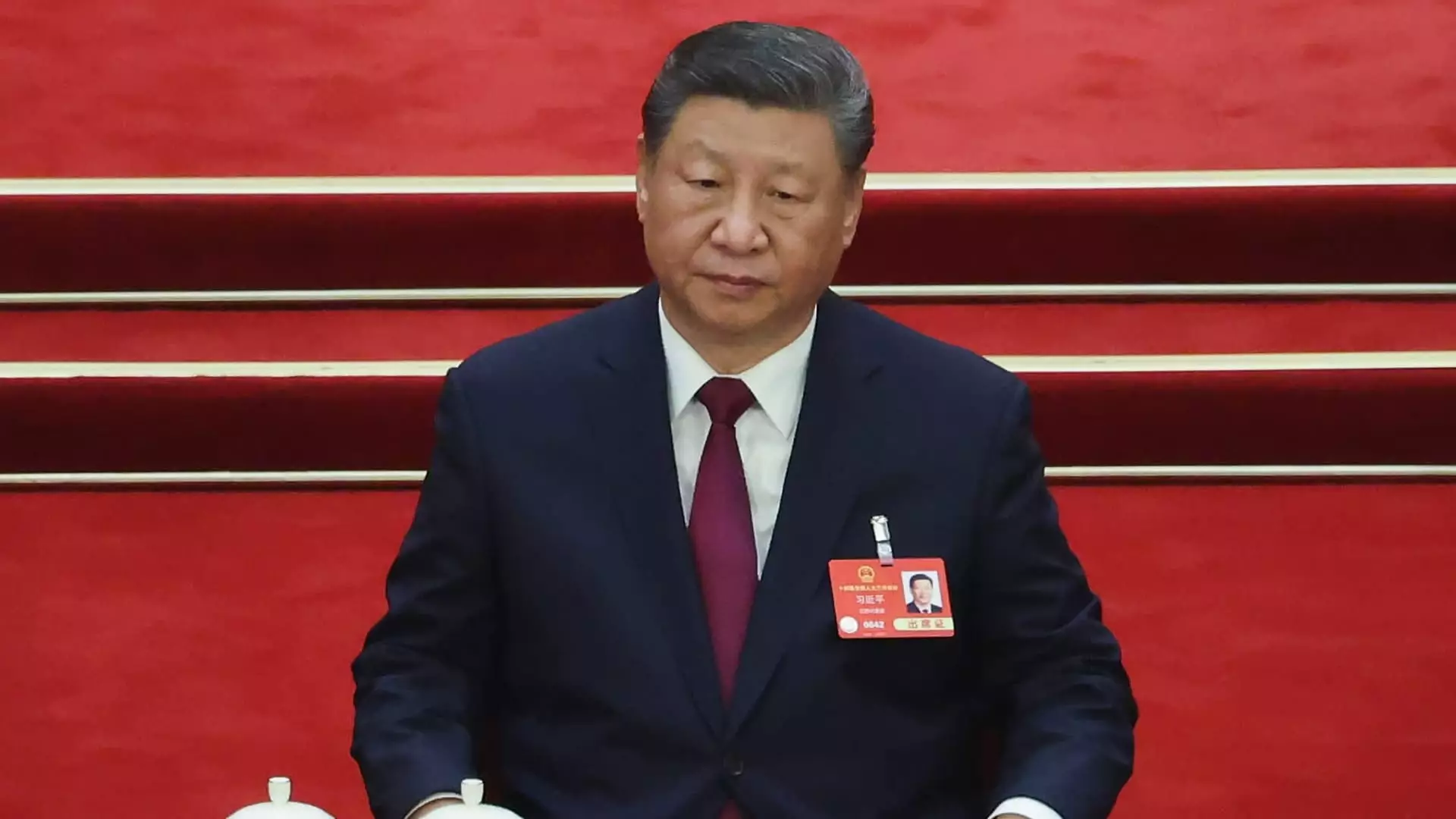The ongoing trade war between the United States and China has reached alarming heights, showcasing a level of economic aggression that leaves many wondering about the long-term ramifications for both nations and the global economy. With China’s recent announcement to hike tariffs on U.S. imports to a staggering 84%, one can only question the strategic wisdom behind such moves. In response to a rising tide of tariffs from the Trump administration, China has adopted a hardline stance, signaling that it will not back down easily. This tit-for-tat escalation is not just a battle over numbers—it’s a dangerous game of economic chess with potentially disastrous outcomes.
As President Trump raises import taxes on Chinese products to over 100%, it seems that both countries have descended into an irrational cycle of retaliation rather than negotiation. The administration’s uncompromising position has left little room for diplomatic discourse. U.S. Treasury Secretary Scott Bessent’s assertion that China is the “worst offender” disrupts the narrative that trade policy should be based on cooperation rather than conflict. The notion that economic warfare can resolve structural issues in a globalized market is fundamentally flawed and reveals a naive understanding of how interconnected the world has become.
Impact on Global Markets: Fear and Uncertainty
The specter of a trade war has created tremors in global markets, leading to a sell-off that has sent shockwaves through stock indexes across Asia and the Americas. The S&P 500’s tumble into bear market territory signals that investor confidence is waning, amidst fears of what rising tariffs might mean for economic growth, inflation rates, and corporate profits. This current climate of uncertainty breeds a disquieting atmosphere where investments in technology and consumer goods become perilous endeavors rather than opportunities for growth.
Such an environment is not conducive to the innovation and progress that both nations urgently need. Instead of fostering an atmosphere where businesses can flourish and advance technologies that enhance productivity, tariffs generate a shield of protectionism that insulates poor business practices and entrenches inefficiencies. As companies grapple with higher costs, consumers ultimately bear the brunt—leading to less spending power and potentially stifling demand.
The Human Cost: Working-Class Struggles
Beyond the numbers and market indices, this trade war inflicts significant pain on everyday people. The rhetoric from the Trump administration paints tariffs as a necessary means to protect American jobs. However, the reality is that working-class individuals are not shielded from the repercussions of escalating import taxes. Increased tariffs have historically led to higher consumer prices, which burden families striving to make ends meet.
Additionally, non-farm labor sectors that depend heavily on imported goods are in precarious positions as their profit margins shrink. Farmers, manufacturers, and small business owners, who had planned for growth, find themselves reeling as uncertainty looms large in their industries. The promise of American prosperity seems increasingly distant while the very policies intended to lift the economy may instead serve to deepen the struggles of the middle and lower classes.
Redefining Trade Relationships: A Call for Diplomacy
In a world where nationalism and protectionism are gaining ground, the need for genuine dialogue and cooperation cannot be overstated. Nations must realize that trade, when managed wisely, can be a powerful tool for mutual benefit. The challenges faced by both the U.S. and China are complex; they require collaboration rather than aggressive posturing. A better approach might involve crafting equitable trade agreements that consider the interests of all parties involved while holding each nation accountable for maintaining fair practices.
To break this cycle of retaliation, diplomatic initiatives must rise above the noise of political rhetoric. New channels for negotiation need to be established that emphasize understanding economic interdependence, fostering fair competition, and protecting the vulnerable sections of society. Only through dialogue can both nations hope to emerge from this tumultuous period with a renewed sense of trust and collaboration, ultimately laying the groundwork for a more stable global economic climate.
As the world watches, it becomes increasingly evident that the real lesson here isn’t found in the rising percentages of tariffs, but rather in our capacity to overcome destructive rivalries in favor of shared prosperity.

